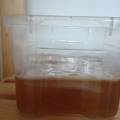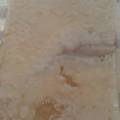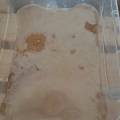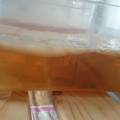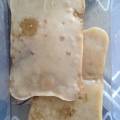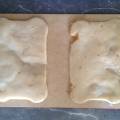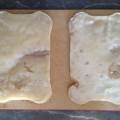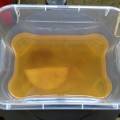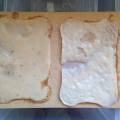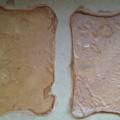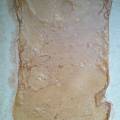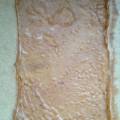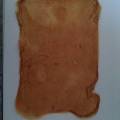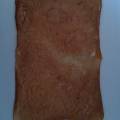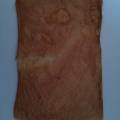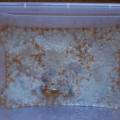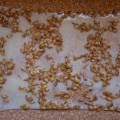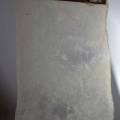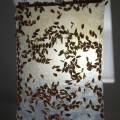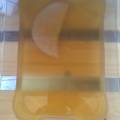Table of Contents
bacterial cellulose
- growing materials from bacteria
the basics (wikipedia)
Biological
A kombucha culture is a symbiotic culture of bacteria and yeast (SCOBY), similar to mother of vinegar, containing one or more species each of bacteria and yeasts, which form a zoogleal material known as a “mother.” The cultures may contain one or more of the yeasts Saccharomyces cerevisiae, Brettanomyces bruxellensis, Candida stellata, Schizosaccharomyces pombe, and Zygosaccharomyces bailii.
The bacterial component of kombucha comprises several species, almost always including Gluconacetobacter xylinus (G. xylinus, formerly Acetobacter xylinum), which ferments alcohols produced by the yeasts into acetic and other acids, increasing the acidity and limiting ethanol content. The population of bacteria and yeasts found to produce acetic acid has been reported to increase for the first 4 days of fermentation, decreasing thereafter. G. xylinum has been shown to produce microbial cellulose, and is reportedly responsible for most or all of the physical structure of the “mother”, which may have been selectively encouraged over time for firmer (denser) and more robust cultures by brewers.
Chemical
Sucrose is converted, biochemically, into fructose and glucose, and these into gluconic acid and acetic acid, and these substances are present in the drink. In addition, kombucha contains enzymes and amino acids, polyphenols, and various other organic acids; the exact quantities of these items vary between preparations. Other specific components include ethanol, glucuronic acid, glycerol, lactic acid, usnic acid (a hepatotoxin), and B-vitamins. Kombucha has also been found to contain vitamin C.
The alcohol content of the kombucha is usually less than 1% but increases with fermentation time.
experiments executed in Berlin
Berlin, Grunewald - spring 2016:
First test to grow fabric from Kombucha Pilz, green tea and vinegar.
I started to grow this batch of Kombutcha on March 11 and I took it out to dry on May 5th.
I bought the Kombutcha pilz via ebay at Petra Kriege - info@gesundheitsgeber.de
On May 6 2016 I started a new batch of Kombucha, grown from the old Pilz:
https://en.wikipedia.org/wiki/Kombucha
Igem Berlin
suzanne Lee - Biocouture
Suzanne Lee - Biocouture Ted Talk
Iza Awad recipe microbial cellulose
voor 2 liter medium:
- 6gr groene theeblaadjes
- 100gr witte suiker
- 2000ml gekookt kraanwater
- 90ml Pokon (plantenvoeding, 100x verdund)
- starter van vorige cultuur (± 90ml)
BarBucha Berlin recipe microbial cellulose
Caffeine is a bitter, white crystalline purine, a methylxanthine alkaloid, and is chemically related to the adenine and guanine bases of deoxyribonucleic acid (DNA) and ribonucleic acid (RNA). It is found in the seeds, nuts, or leaves of a number of plants native to Africa, East Asia and South America, and helps to protect them against predator insects and to prevent germination of nearby seeds. The most well-known source of caffeine is the coffee bean, a misnomer for the seed of Coffea plants. Beverages containing caffeine are ingested to relieve or prevent drowsiness and to improve performance. To make these drinks, caffeine is extracted by steeping the plant product in water, a process called infusion. Caffeine-containing drinks are coffee, tea, and cola. https://en.wikipedia.org/wiki/Caffeine
For growing extra strong skins: always use black tea. Bacteria need caffeine for spinning their fibres.
For 1 liter growth medium:
- 650 ml water
- 350 ml starter medium
- 10 gr loose leaves of black tea
- 60 gr white sugar
for 10 liters of medium:
- 6,5l boiled water
- 3,5l starter medium
- 95gr black Turkish tea
- 500gr white sugar
kleine bakken - per bak
- 2l water
- 180gr witte suiker
- 30gr zwarte thee (10 zakjes van 2 gr)
- 1l starter medium
la recette d'Anouk Lewko - pour 1 litre de medium
- 30 ml de vinaigre de cidre ou blanc
- 100gr sucre blanc
- 1l d'eau
- 13g de thé noir
- 30 ml de vodka
- optionnel: sels minéraux: 2 gouttes
- optionnel: magnésium 2 gouttes
2020 Drink-Kombucha brewing
- scoby from the middle of the mother
- 750ml water
- 250ml starter ± 4pH
- 100ml witte azijn
- 90gr witte suiker
- 10gr zwarte Turkse thee (los)
kombucha recept 3 liter
- 24 gr losse zwarte of groene thee
- 300 gr witte suiker
- 3 l water (met weinig mineralen)
- 300 ml kombucha van vorige bereiding
- https://www.kefirshop.eu/nl/kombucha-scoby-xl.html

